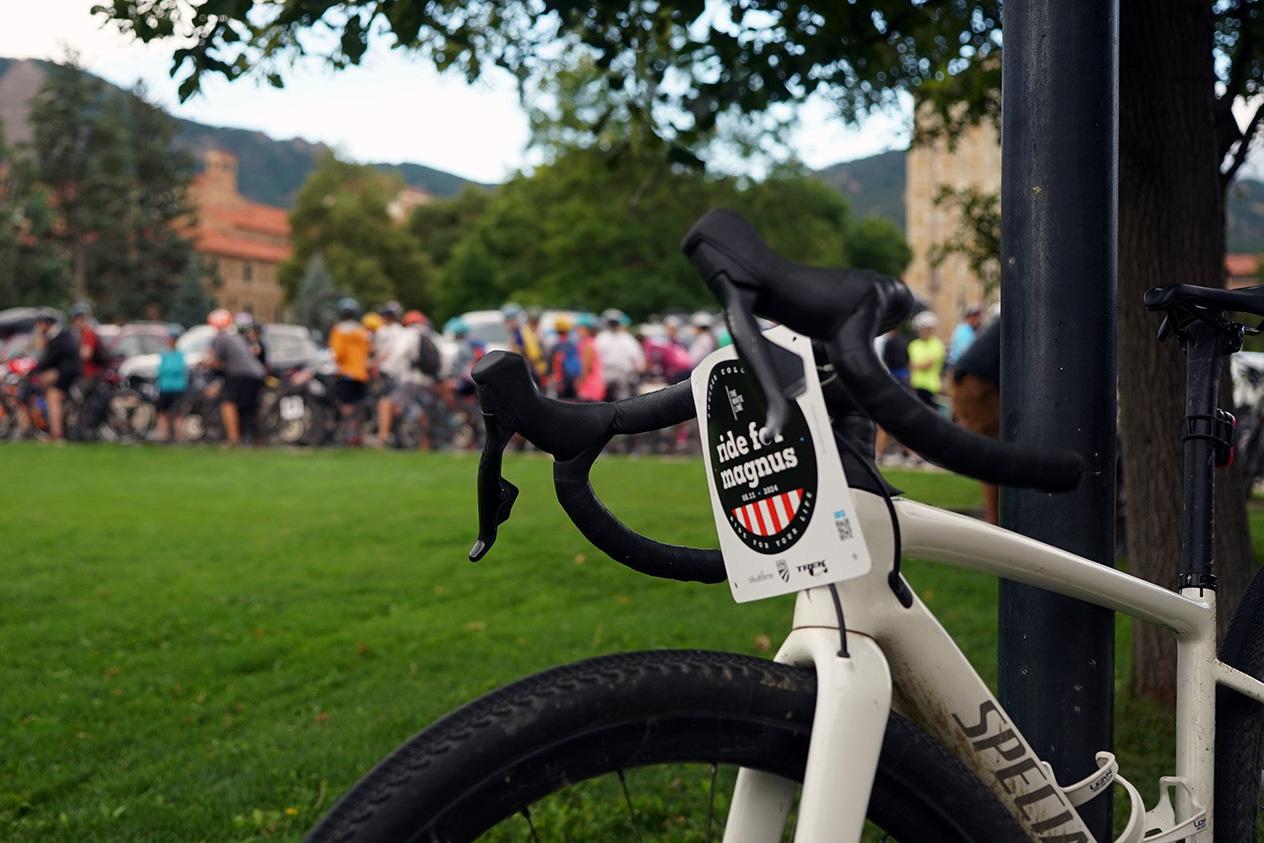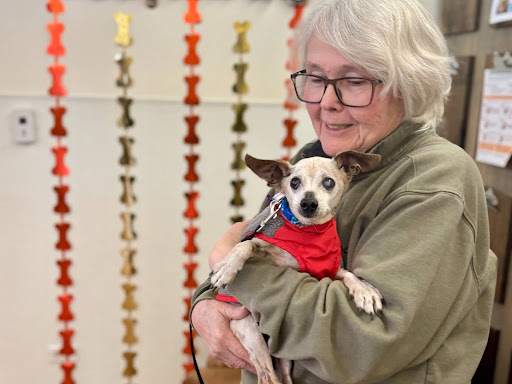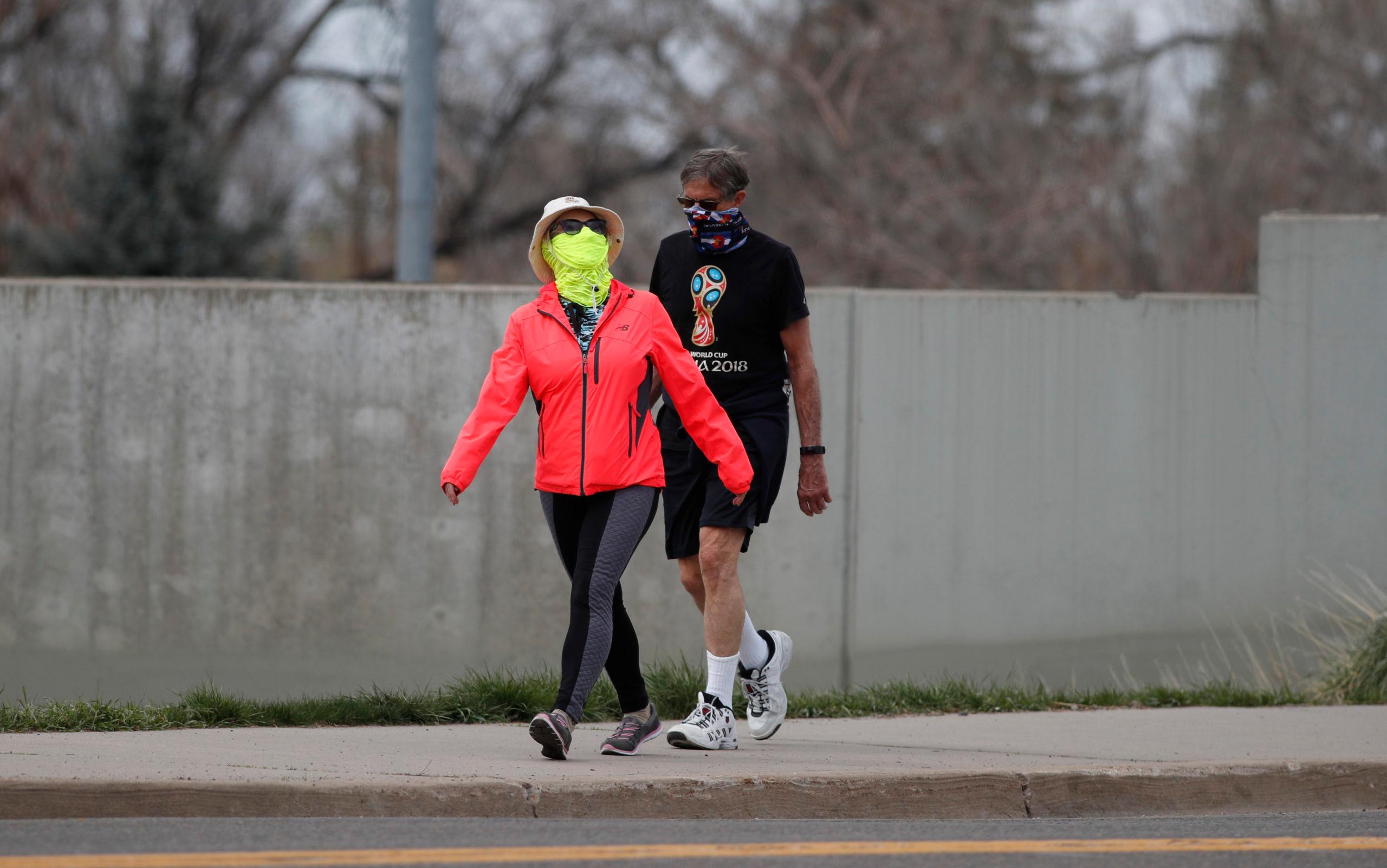
This post collects all of our reporting and updates on the coronavirus in Colorado for Monday, April 6, 2020. You can find Tuesday's latest here. Our original play-by-play of reporting continues below.
6:38 p.m. — Statewide stay-at-home order extended to April 26
Gov. Jared Polis announced he was extending the statewide stay-at-home order through April 26 in an Oval Office-style address from the governor's office.
It was originally due to expire this Saturday, April 11.
“The better job we do at staying in, the sooner we can go back out,” he said.
6:32 p.m. — Polis is addressing the state now
The governor is taking a slightly different approach to his regular coronavirus briefing today.
Gov. Jared Polis will address the state Monday night at 6:30 p.m. in a speech from the governor’s residence in Denver. It’s not a press conference; there will be no reporters and he won’t be taking questions. Instead, he’s expected to give more of an Oval Office-style address on the state’s response.
CPR is carrying the address live on air, along with analysis before and after the governor speaks from our reporters Bente Birkeland and John Daley and host Ryan Warner.
This is what we're listening for tonight in Polis' address.
Listen by clicking the "Listen Live" button above or watch a live video here.
5:26 p.m. — Lawyers wanted statewide rules on who should stay in jail during the coronavirus outbreak. The Colorado Supreme Court declined to make them
The Colorado Supreme Court on Monday declined a request from public defenders and criminal justice advocates to create statewide rules on who should stay in county jails due to COVID-19 risks.
Lawyers who represent the thousands of people in jail in Colorado say some sheriffs and prosecutors are working hard to de-populate jails. Many big jails have winnowed populations down below 25 percent of what they were before the pandemic. But others aren't doing enough, and advocates say that is unfair to people in crowded jails in some counties.
"We know there are some jurisdictions doing an exemplary job," said Rebecca Wallace, a lawyer at the American Civil Liberties Union. "This isn't really a question of law and order versus criminal justice reformers. This is a question about how we keep people both behind bars and outside the bars, in the free community, how we keep them safe and healthy."
There have been positive COVID-19 cases in Denver, Weld County and El Paso jails, as well as in several members of the law enforcement community.
Advocates say they haven't ruled out suing some of the counties refusing to release people from jail.
— Allison Sherry
5:15 p.m. — You've almost made it through Monday. Have some live local music
The Underground Music Showcase is back with another livestreamed performance from a local musician. Today, it is Denver's shark dreams. Enjoy.
— Alex Scoville
4:27 p.m. — Colorado lawmakers want to make sure rural hospitals and clinics can access Small Business Administration disaster loans, too
Colorado Congress members representing the state’s rural areas want the SBA to ensure programs available through the most recent stimulus package, the CARES Act, are available to all rural hospitals and clinics, including those owned or operated by counties or districts.
Sens. Cory Garder and Michael Bennet and Reps. Joe Neguse, Scott Tipton, Ken Buck and Doug Lambon have written to SBA Administrator Joviita Carranza arguing the recent $2 trillion coronavirus stimulus package includes “lifelines for struggling businesses, and it is critical SBA ensure that those programs can be used to support our rural hospitals and clinics.”
The delegation has heard that SBA’s interpretation of the CARES Act precludes Critical Access Hospitals and Rural Health Clinics, which are already struggling throughout the state. It would mean they could not access assistance such as the Paycheck Protection Program, an incentive for small businesses to keep workers on the payroll during this crisis.
Tipton, whose district covers the entire western part of the state, said in a statement that rural health care providers are fighting to get personal protective equipment, “added fear that many employees won’t keep their jobs amid a public health crisis is unacceptable.” He said this issue needs to be ”resolved immediately.”
— Caitlyn Kim
4:18 p.m. — This is where cases of the new coronavirus are in Colorado
4 p.m. — Is your mental health suffering because of the pandemic? A new hotline offers help
Aurora Mental Health is launching a new support line, available 12 hours a day, to give people anywhere in the state immediate access to a therapist.
The goal is to help those feeling stressed, anxious, and overwhelmed by the pandemic and the drastic measures being used to counter it.
The support line operates in English from 8 a.m. - 8 p.m., every day of the week. Counseling in Spanish is available Monday through Friday, from 4 p.m. - 8 p.m.
To access the line, people can call 303-617-2300 and choose option 5.
— Megan Verlee
3:44 p.m. — As Zoom booms, Bennet worries about the video conferencing company's security
More people are turning to video conferencing to do business or stay in touch amid the COVID-19 outbreak.
Colorado Sen. Michael Bennet wants to make sure the information shared over the platform remains secure. Bennet has written to the CEO of Zoom, one of the preferred online video conferencing platforms, to find out what the company is doing to protect user data.
The letter comes after some zoom conferences were hacked and other sessions intended to be private have been viewable by the public, including classes with young children.
The company, which has seen the number of users on its service grow exponentially due to self-isolation during the coronavirus pandemic, said last week it is trying to make the platform more secure.
Among the questions that Bennet has for the company questions for the company are: What kind of data Zoom collects and for how long does it keep it? Who does the company share the data with? Has the company notified users that the videos are searchable online?
Bennet has requested an answer to his questions by April 15.
— Caitlyn Kim
3:39 p.m. — Colorado colleges are (mostly) declining to offer refunds to students whose spring semesters were disrupted
When colleges across Colorado and the nation began closing in March and sending students home, many wondered if they would get a refund for their spring semester classes disrupted by the new coronavirus, or the meal plans and dorm rooms they were no longer using.
Colorado Mountain College has announced it will not be issuing tuition refunds in an online Q&A in late March, as first reported by The Aspen Times. CMC did offer partial refunds on housing and dining fees.
A petition circulated and signed by Colorado State University students asked for a partial tuition refund to reflect the facilities and services they paid for and no longer have access to. An email to students from provost and executive vice president Rick Miranda said the school did not plan to offer refunds.
An increasing number of students nationwide are demanding a tuition refund. The student government at Johns Hopkins University in Baltimore last week asked the administration to refund 25 percent of the tuition for the spring semester. The university has declined to do so.
CMC officials said they are offering students a comparable experience with online learning, and to do so, will extend online courses through the summer session in light of the new coronavirus pandemic.
The college has reached out to students “in the few cases where a physical element of the course may need to be postponed” and offer options to continue the coursework at a later date. CMS is also seeking to help students who lack computer access or reliable internet service.
— Kelley Griffin and Alex Scoville
2:34 p.m. — Denver extends stay at home order
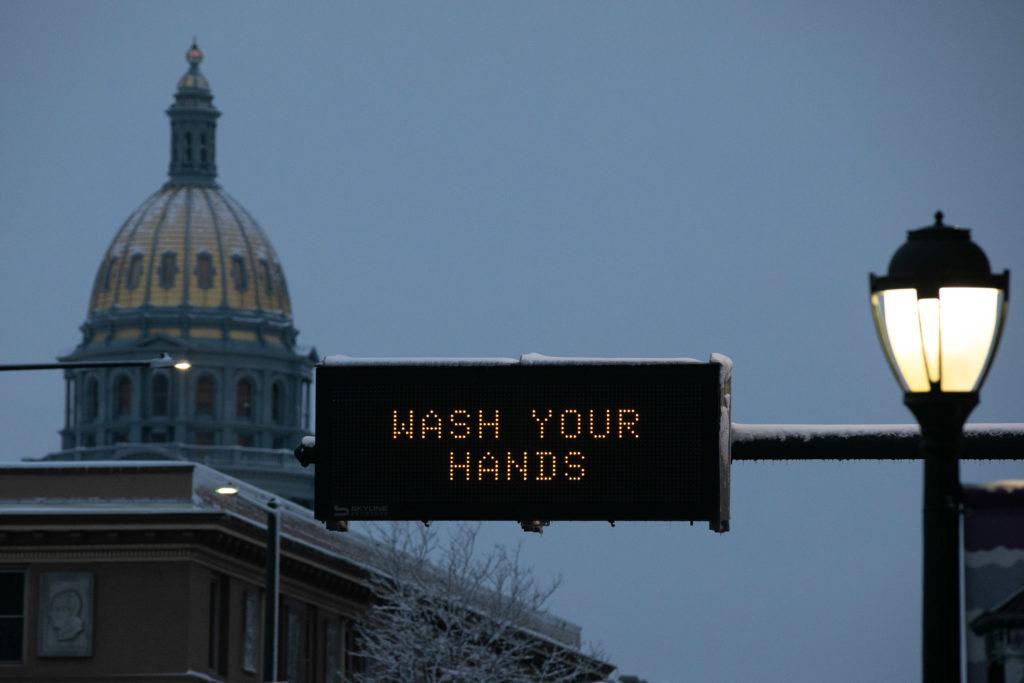
Denver has extended its stay at home order through April 30. The measure was originally due to expire on Saturday, April 11.
“I am very proud and thankful for all the Denver residents who are staying at home and practicing physical distancing,” Mayor Hancock said in a statement. “I know this hasn’t been easy for many, but given the current data and advice from experts about the spread of COVID-19 in our community and across the country, these are the actions that are going to get us on the other side of this curve and protect the health of as many people as possible.”
Meanwhile, the city has been busy enforcing the order. As of Monday, Denver has had:
- 6,090 contacts with businesses and residents about compliance with the stay-at-home order
- 1,796 warnings issued
- 14 citations issued
The City and County of Denver amended its order to match the statewide stay at home mandate.
— Alex Scoville
2:22 p.m. — Denver lawmakers want the National Guard to help set up a new homeless shelter for the city
City and state lawmakers representing Denver are calling on Gov. Jared Polis to send in the National Guard to help set up one large shelter in Denver where people experiencing homelessness can stay during the coronavirus outbreak.
“We are reaching the limit of what we as a city can do on our own,” Robin Kniech, an at-large member of the Denver City Council, told reporters Monday.
Get the full story on Denverite.
— Donna Bryson
2:14 p.m. — Ask Gov. Jared Polis your questions
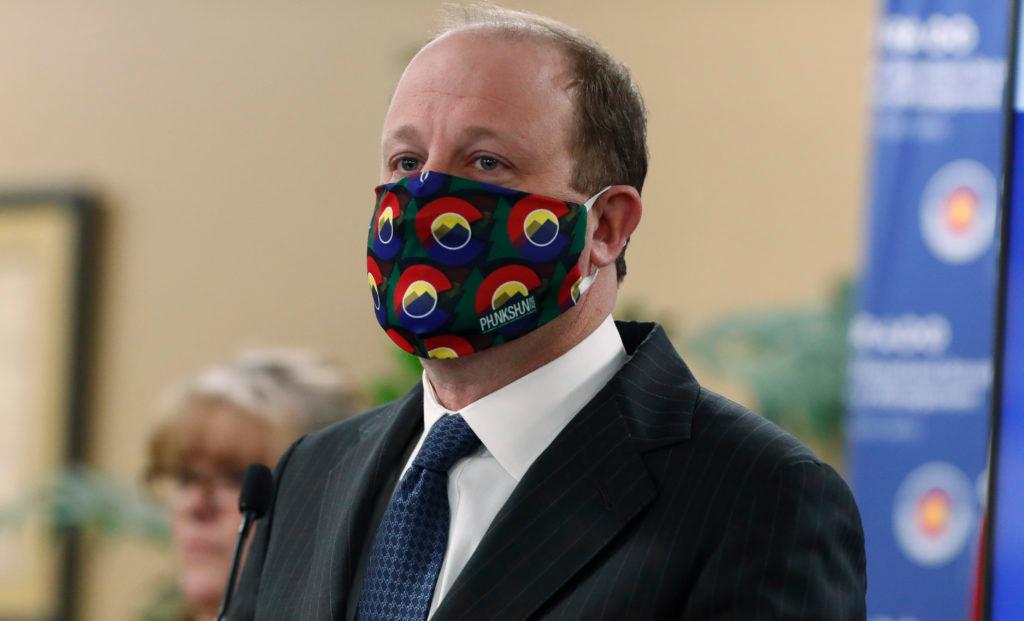
CPR News, along with 9News, KRDO and KKCO/KCJT will air a town hall with Gov. Jared Polis on Tuesday, April 7 at 7 p.m.
Kyle Clark from 9News will host the interview and question and answer with the governor.
Learn more and fill out the questionnaire form here.
2:08 p.m. — The latest coronavirus case numbers
Updated 4:06 p.m.: Data released on the state health department's website showed slight differences from numbers given during a press conference earlier in the day.
The latest information from state health officials shows 5,172 confirmed cases of COVID-19 in Colorado.
That is an increase of 222 cases since numbers were released yesterday when the total stood at 4,950.
There are now 150 deaths due to the disease in the state, 10 more since the day before.
Nearly 1,000 cases have been hospitalized, from 924 to 994 in the past day.
There are now 41 outbreaks in residential or non-hospital health care facilities, four more since the last release of data.
Colorado has tested nearly 27,000 people.
— Alex Scoville
1:14 p.m. — Long-term care company to test all new residents for COVID-19
Assured Assisted Living announced Monday it would be the first long-term care facility in Colorado to test all new residents for the novel coronavirus.
The company operates 10 facilities in Castle Rock and Denver, and has partnered with Centennial State Lab to provide full PCR testing — which includes testing for COVID-19 — for any new resident in any of its facilities.
"Asymptomatic transmission is a big concern with coronavirus, and residents at all types of facilities are especially vulnerable. We feel that it is important to implement a testing procedure as soon as possible so we can ensure a safe and welcoming environment in these challenging times," the company said in a release Monday.
The tests will be administered to prospective residents via nasopharyngeal swabs when staff does its initial assessment. Those who test negative could move in immediately, and those who test positive but need immediate placement could be quarantined at a specialty care home until they recover.
As of 4 p.m. on Sunday, the Colorado Department of Public Health and Environment reported 37 outbreaks in residential or non-hospital health care facilities in the state.
An outbreak is defined as two or more residents with new lab-confirmed diagnoses of COVID-19 by an FDA-approved COVID-19 test within a 14-day period, or two or more cases of respiratory illness in residents with symptom onset within a 14-day period and at least one resident with a new diagnosis of COVID-19 by an FDA-approved COVID-19 test.
— Daniel J. Schneider
12:14 p.m. — Fort Collins manufacturer to make low-cost ventilators for Colorado
Woodward, a Fort Collins-based aerospace and industrial manufacturer, has accelerated work to make low-cost ventilators for the state, according to JB Holston, engineering dean at the University of Denver.
Holston, who serves on the Innovation Response Team formed by Gov. Jared Polis to combat COVID-19, told Colorado Matters the ventilators will be delivered in a few weeks.
Holston said the company will file today with the Food and Drug Administration for an emergency use authorization so they can produce the needed ventilators. No immediate comment was available from Woodward.
— Sarah Mullholland
11:49 a.m. — A way to help Colorado coffee roasters
Colorado coffee shops have had to close or scale back their operations in the face of COVID-19. Many of them relied on foot traffic to sling their beans.
That’s why Native Coffee Club has launched #SAVECOLORADOCOFFEE.
They’re harnessing the power of their coffee subscription service to benefit more than a dozen local roasters and cafes — from Otis Craft Collective in Lafayette to Middle State Coffee in Denver to Harbinger Coffee in Fort Collins. There are links to buy beans, merchandise, and gift cards.
— Ryan Warner
11:09 a.m. — Show us your face masks!
On Sunday we asked CPR News followers to show us their masks on Twitter. Here are some of the great photos we got back — plus a few of ours!
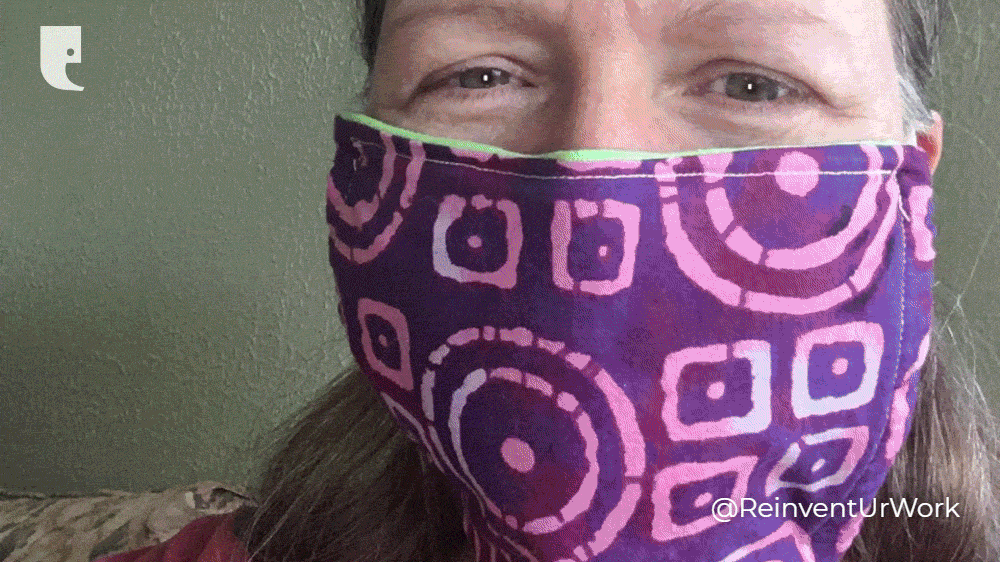
— Colorado Public Radio Staff
10:04 a.m. — Denver City Council has gone virtual
9:35 a.m. — Looking for your stories and experiences
The state is urging people to update their 'advance directives' amid the coronavirus pandemic. Those are things like CPR orders, wills and do-not-resuscitate orders. Are you discussing end-of-life planning with your family? If so, email taylor.allen@cpr.org
— Taylor Allen
8:56 a.m. — Don't forget: RTD service levels cut back on April 19. Here are the schedule changes
Leading into the outbreak, RTD's ridership was down 70 percent — even before stay-at-home orders took hold. Now the transit agency is allowing rear-door boarding and has stopped collecting fares as they encourage social distancing and continue to provide an essential service.
The weekend-level full-time service cuts start April 19 and RTD has posted the bus and trains scheduled for all the affected lines.
— Jim Hill
7:57 a.m. — Construction too economically important to halt, some say, while others question that
When Denver Mayor Michael Hancock and Colorado Gov. Jared Polis knighted construction an essential industry in late March, they may have kept a sputtering economy going. They also may have exposed construction workers and their families to more health risks than their peers in industries where working from home is more doable.
Now it’s up to individual companies and their foremen and forewomen to make sure workers aren’t spreading the disease on sites throughout the city. That means working six feet apart, washing hands, and wearing gloves and masks in some cases, according to state rules. It means not sharing tools. It means allowing only one trade — carpenters, drywallers, sheet metal workers — in a building at a time.
— David Sachs
7:21 a.m. — RTD made some changes this weekend
7:15 a.m. — Emergency Center worker tests positive
State officials say a member of Colorado's Unified Command Group at the State Emergency Operations Center in Centennial just outside of Denver has tested positive for the coronavirus.
The Colorado Division of Homeland Security and Emergency Management says the worker tested positive on Saturday. Spokeswoman Micki Trost said staffers who determine they worked in the same area in the last 48 hours are being told to self-quarantine. Medical screenings of staff are being increased from once daily to twice a day.
— Associated Press
6:52 a.m. — Medical masks, protective gear still hard to come by
Colorado health care workers have called for more personal protective equipment as they continue to work on the front lines of the new coronavirus pandemic. They spoke out in a video press conference hosted with Democratic Congressmen Jason Crow and Joe Neguse.
Home health care provider Ashley Moore said that it’s gotten to the point where they make masks from whatever items they can find.
"We’re literally making masks from paper towels, rubber bands and staples," she said during the video conference. "It is scary and it’s sad, but it’s better than sending our caregivers to work without any protection at all."
Colorado received a third shipment from the strategic national stockpile on Friday. But it’s still a fraction of what the state has requested.
— Caitlyn Kim
6:30 a.m. — As cases climb, Colorado looks to prepare new emergency medical standards
As of Sunday, there are 4,950 known positive cases and 140 deaths in Colorado. Hospitalizations continue to rise, with 924 now under care.
Public health and community leaders voted on Sunday that the state prepare to suspend normal hospital decision-making protocols in favor of what is called “crisis standards of care.” It's an unprecedented step in the state. The guidelines set out how to make the most urgent decisions if resources become scarce.
“One of the major reasons to have this is kind of an organized umbrella approach is to try to make it fair across the board," said Steve Cantrill, a Denver Health emergency doctor.
Life-or-death decisions would be out of the hands of frontline providers. Instead, a triage team at each hospital would decide who gets limited resources. The governor's approval is required to activate the protocols.
— John Daley
